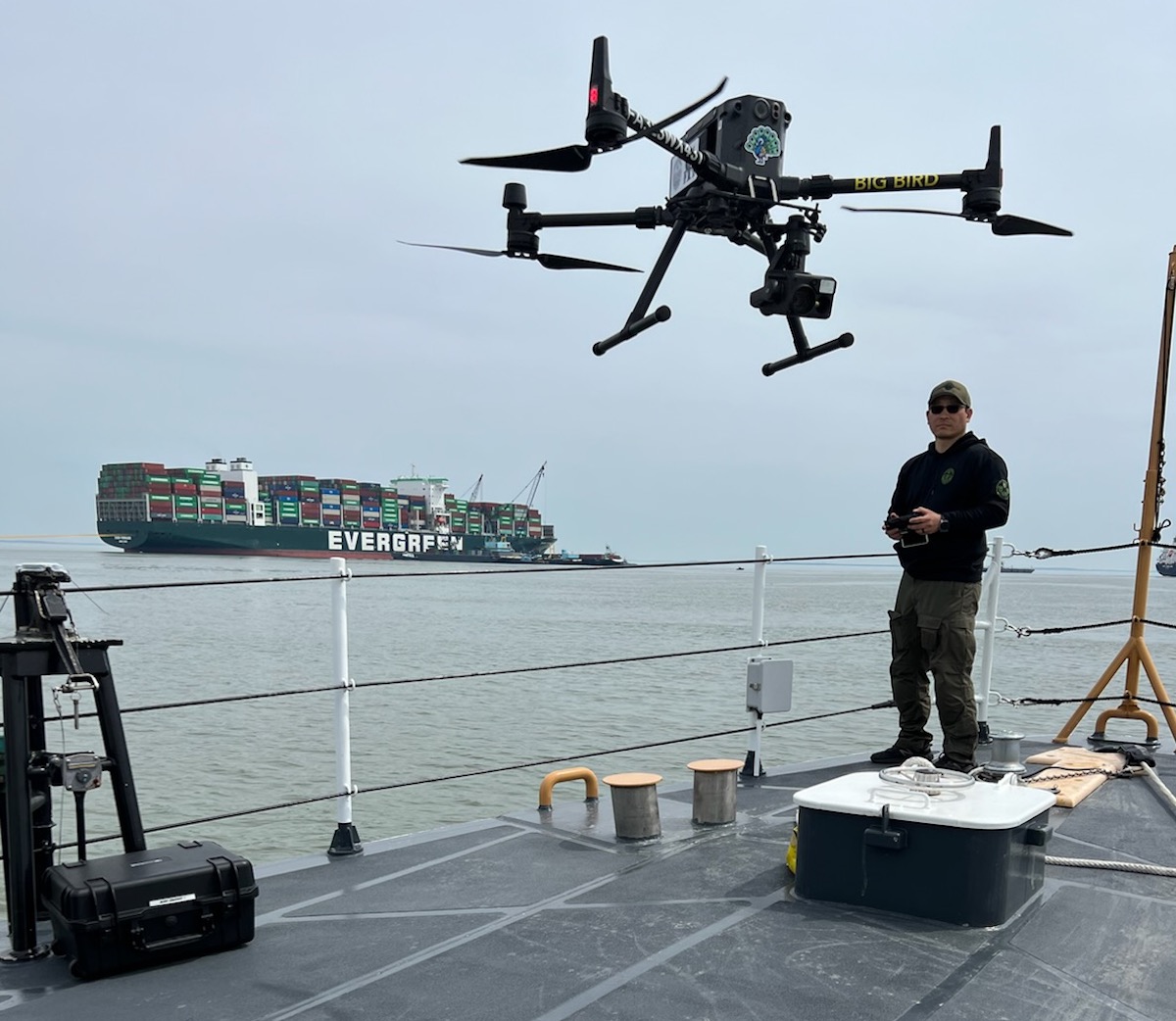
The George Mason University Police Department is lending its aerial assets to efforts to free the large container ship stuck in the Chesapeake Bay after running aground more than a month ago.
The Ever Forward is a Taiwanese-flagged ship that has been stuck near Annapolis, Maryland, since missing a turn in the shipping channel and running aground on March 13.
At nearly 1,100 feet long and 158 feet wide, the Ever Forward is the largest boat ever stuck in the Chesapeake Bay, one of the biggest boating hubs in the country
Mason officers responded to a U.S. Coast Guard request to provide their Unmanned Aerial Systems (UAS) drones in support of the operation. Mason UAS crews are operating from an 87-foot Coast Guard cutter after being picked up at Maryland’s Sandy Point State Park and transported 1.9 miles from shore to the cutter via small boat.
The UAS Unit comprises personnel from Mason personnel and the City of Fairfax Fire Department, with additional assistance from the Manassas Park Police and the Fauquier County Sheriff’s Department to help carry out the challenging week-long flight mission. Mason’s UAS operations began on Saturday, April 9, and are expected to continue through Saturday, April 16.
“Having seen the capabilities of the drones and the high quality of the video, [the U.S. Coast Guard] thinks that it is the best technology they have ever had at their disposal for incident command,” said Mason Police Chief Carl Rowan Jr.
The unit is providing real-time video feeds to the USCG Joint Operations Command, which oversees the operations.
“This is an international commerce problem,” said Michael Lighthiser, deputy chief who oversees Mason Police's Special Operations, Research and Training Unit. “We’re helping to facilitate what has to be done. We don’t have the ability to move containers, but we can make sure that those who do, can do so safely.”
Local, state and federal officials worry about the potential ramifications should the ship not be successfully freed.
“It’s a huge ecosystem and who knows what’s happened to that boat underneath,” Lighthiser said. The goal is to minimize negative economic and environmental outcomes.
After dredging efforts and two failed attempts to pull the ship out of the mud, state and local officials opted to lighten the ship’s load. Salvage crews using crane barges are removing hundreds of cargo containers from the Ever Forward. The Coast Guard says now the goal is to unload 550 containers—about 7.5 tons—off before trying again to pull the ship out of the mud.
But offloading in open waters can be extremely risky.
That’s where the UAS systems come in handy, allowing Coast Guard officials to see exactly what is on the ship and what it will require to get to it. The drones are also playing a key role in the enforcement of a 500-foot safety zone around the ship.
